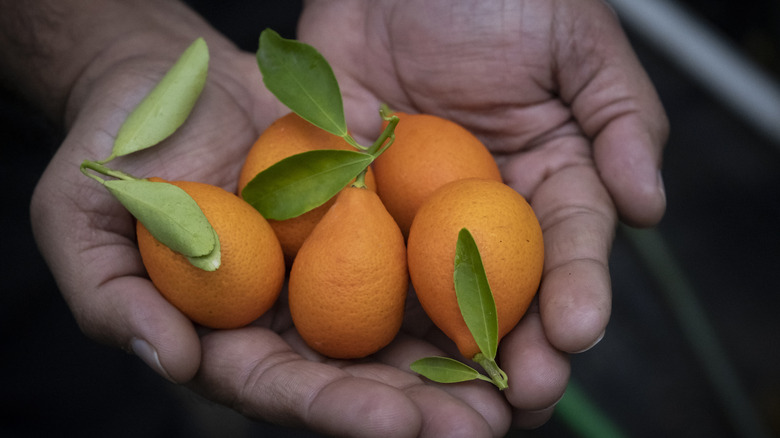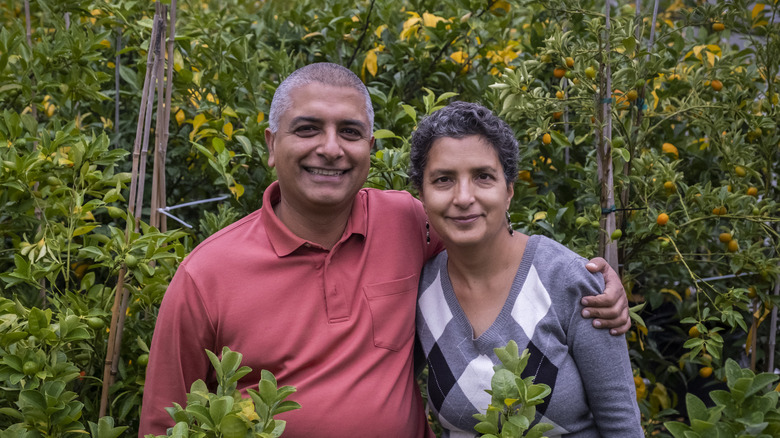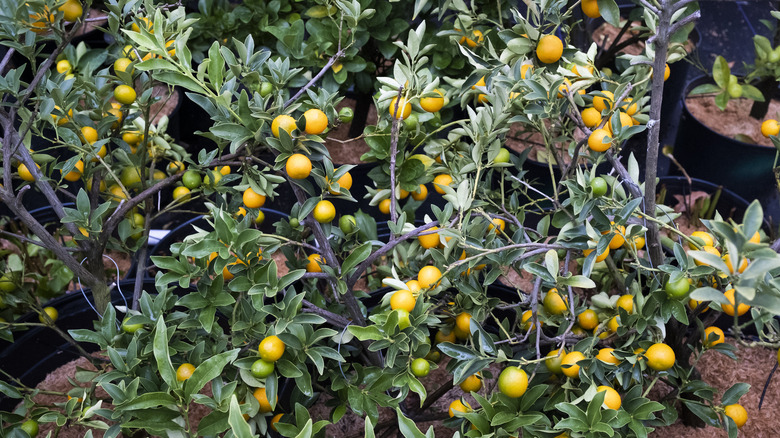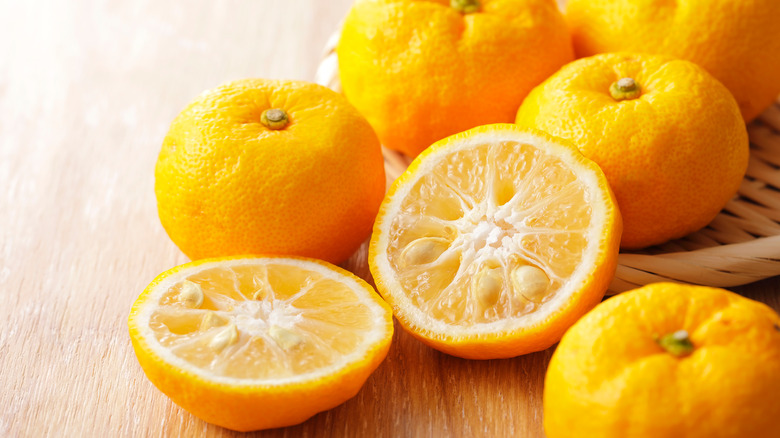The NJ Citrus Company That Caters To Michelin-Starred Restaurants
There is a wide world of citrus beyond the lemons and limes you'll find in supermarkets. For entrepreneurs Vivek and Seema Malik, all it took was a taste of yuzu-spiked ponzu to open their eyes. After discovering this dish at Nobu in New York City, the husband and wife team couldn't stop craving its unique, tangy flavor. Their fascination with this fruit sparked a passion that led to the creation of Flavors By Bhumi, a New Jersey-based greenhouse operation that supplies citrus to restaurants all across the U.S.
Yuzu trees don't grow overnight, and neither do businesses. The Malik's first crop was a single tree grown in their own home. After tracking down fresh yuzu at a local market, the couple decided to plant a few of its seeds. It took over a decade for their first tree to bear fruit, but once it did, their ambitions began to bloom along with it.
The first seeds
After that first crop, Vivek tested the waters of his new business idea by bringing fruit samples to nearby restaurants. Yuzu is native to Japan, and chefs were excited about cooking with a locally-grown option. Their interest gave the Maliks the confidence to leave their careers in finance behind and embark on the journey of founding a greenhouse.
Life on Wall Street prepared the Maliks for the day-to-day operations of a small business, but it did nothing to teach them about the needs of citrus trees. Vivek expounded on the steep learning curve, saying, "at the beginning [we made] any and every mistake that you can possibly think of to ruin a citrus tree." But over time, the Maliks got the hang of things through trial and error, and the trees began to flourish. Speaking to this, Vivek remarked, "we've learned everything very organically. As a result, we've become ... experts at growing citrus trees because we really understand what they need."
Beyond lemons and limes
As the Maliks gained confidence in the greenhouse, they started to expand their offerings. After yuzu, they began growing sudachi (a type of sour orange), kumquats, and finger limes. As chefs started to make special requests, their portfolio expanded even further. Today, the Maliks grow and source over 50 types of citrus.
Flavors by Bhumi offers chefs a chance to experiment with flavors beyond what's readily available in American grocery stores. The lemons and limes we're most familiar with became the dominant option in markets less due to their flavor and more because they're easier to grow than other citrus varieties. Of course, there's nothing wrong with these fruits, they're just not the whole picture. Seema remarks that "each citrus had its own unique flavor ... even something as benign as a Meyer lemon, which is still available in a grocery store, has a huge difference in flavor [when compared to our lemons]. Now, imagine that multiplied into [50] other varieties of citrus."
Citrus by Bhumi in Restaurants
Today, you can find Bhumi fruits on the menu at prestigious, Michelin-starred establishments like Le Berandain and Oxalis, as well as many others. SoHo's Vestry's dishes out chu toro,a nigiri dish that uses yuzu juice and zest on with roe and wasabi for a zesty complement to the delicate and fatty tuna. Flecks of the vibrant yuzu zest also top another fish dish — the cured cobia, yogurt, and watermelon radish assemblage at Gabriel Kreuther's on 42nd Street.
Seema describes the way restaurants work with their product, saying, "each chef is so unique in their perspective, I can tell you this, nobody is using our citrus ... just to squeeze it on their pasta." Bhumi's specialty citrus is often a prominently featured, memorable component of a recipe.
From their first taste of yuzu ponzu to their very first clients, restaurants have always been central to the Malik's love of citrus. Today, chefs at some of the best restaurants in the country make up the majority of their client base, where Bhumi citrus is featured on menus. Seeing the finished dishes is a point of pride for the Maliks — as Vivek articulates, "it's very, very rewarding and very satisfying to see that they can use [our fruit] in so many different ways."



